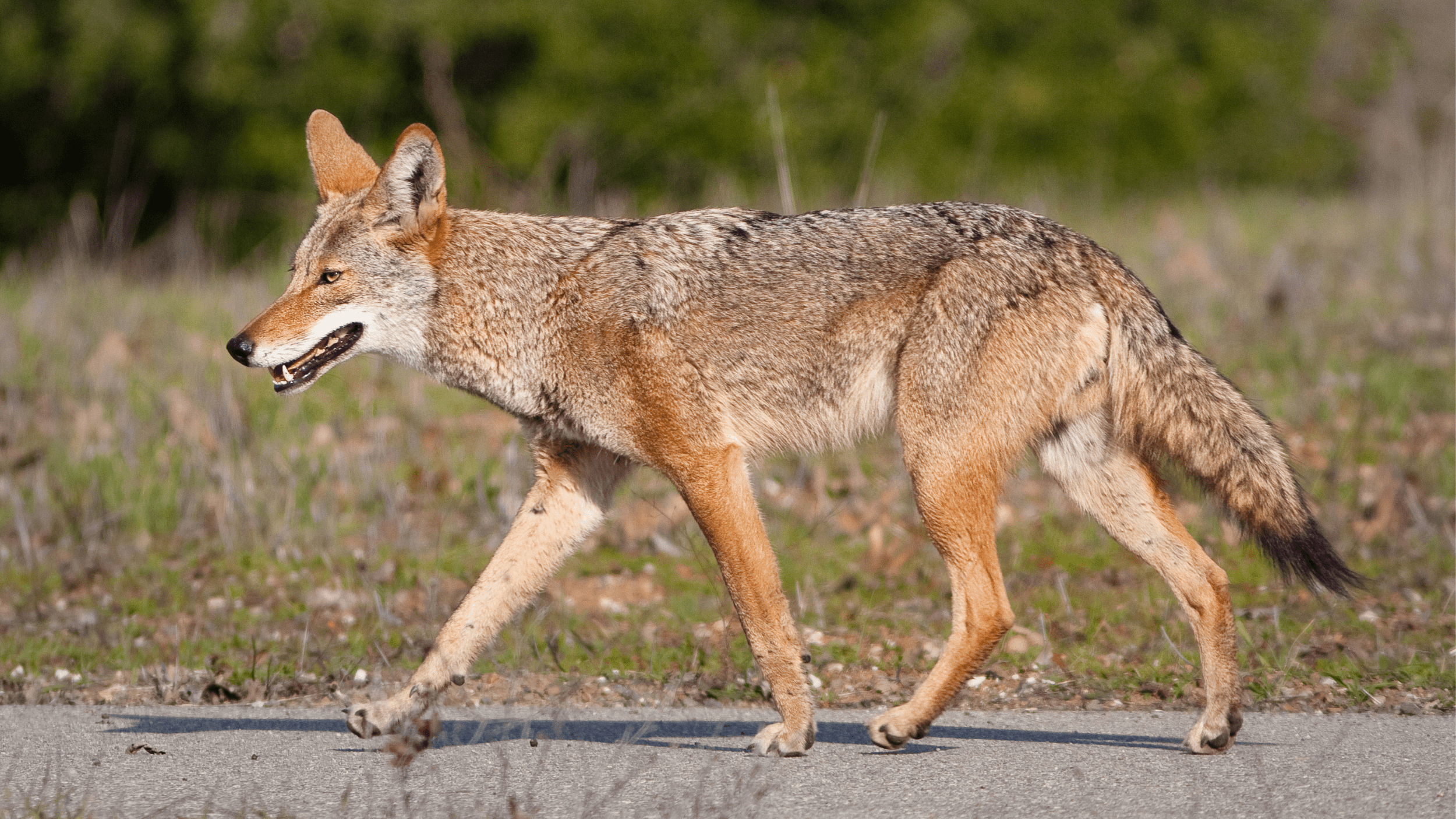
Florida Coyote
(Canis latrans floridanus)
The Florida Coyote (Canis latrans floridanus) is a subspecies of the coyote that is native to the state of Florida in the United States. Similar in appearance to its cousin, the western coyote, the Florida coyote possesses distinct characteristics that set it apart.
Florida coyotes typically have a medium-sized body with a slender build, well-suited for agility and speed. They possess a thick, coarse fur coat, which can vary in color from reddish-brown to gray or black, allowing them to blend in with their surroundings. Their bushy tail is usually carried low and has a black tip.
These adaptable creatures have successfully established themselves in a wide range of habitats throughout Florida, including forests, swamps, suburban areas, and even urban environments. They are highly adaptable and can thrive in various ecosystems, from coastal regions to inland areas. Their ability to coexist with humans has led to their presence in residential neighborhoods and green spaces.
Florida coyotes are primarily crepuscular or nocturnal animals, meaning they are most active during dawn and dusk, as well as nighttime hours. They are opportunistic omnivores, with a diverse diet that includes small mammals, such as rabbits and rodents, birds, reptiles, insects, fruits, berries, and occasionally carrion. Their resourcefulness and adaptability allow them to exploit various food sources available in their environment.
While coyotes are known to be highly social animals, Florida coyotes tend to exhibit more solitary behavior due to the lower population density in their range. However, during the breeding season, which typically occurs from January to March, pairs or family groups may form temporarily.
Florida coyotes are not known to be significant carriers of diseases that directly affect humans, unlike some other species of wildlife. However, they can contract and transmit certain diseases, such as rabies or tick-borne illnesses, if infected. It is important for individuals to avoid direct contact with coyotes and take necessary precautions when encountering them, such as keeping a safe distance and not feeding them.
To minimize potential conflicts with Florida coyotes and maintain a harmonious coexistence, it is recommended to secure outdoor food sources, such as pet food or unattended garbage, to avoid attracting them. Fencing can be used to protect small livestock and pets from potential interactions with coyotes. If you encounter a coyote displaying aggressive or unusual behavior, it is advisable to contact local wildlife authorities or animal control to ensure the safety of both humans and wildlife.
Overall, Florida coyotes play an important ecological role in maintaining balanced ecosystems and contribute to the state’s biodiversity. By understanding and respecting their presence, humans can foster a coexistence that benefits both the wildlife and local communities.

